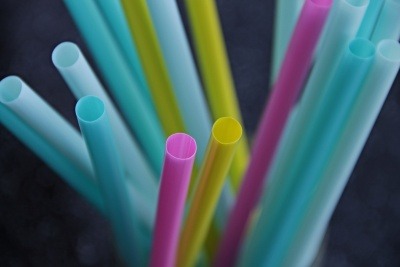Defra delays ban on plastic straws
The Department for Environment, Food and Rural Affairs (Defra) announced yesterday (15 April) that it will delay the ban on plastic straws, cotton buds and stirrers until October 2020 due to the potential problems the ban would entail for businesses during the pandemic.

Last May, the former Environment Secretary Michael Gove announced the ban would come into effect from the end of April 2020 after consultation with the public showed 80 per cent of participants were in support of a ban on the distribution and sale of plastic straws.
Nevertheless, Defra has taken the decision to postpone the ban until later this year due to the difficulty of sourcing alternatives to single-use plastics during the Covid-19 outbreak.
Research conducted on behalf of Defra last year estimated that 4.7 billion straws are used in England alone every year, along with 316 million stirrers and 1.8 billion plastic-stemmed cotton buds, with large numbers ending up in landfill, incineration or as litter.
Whilst Defra claims this is a “temporary measure”, there have been concerns levied following this decision.
Defra has claimed that there will be very minimal changes to the statutory instrument allowing for the ban to be implemented later this year.
A Defra spokesperson stated: “Delaying the plastic straws, cotton buds and stirrers ban is a temporary measure due to the unprecedented Covid-19 situation. We remain absolutely committed to turning the tide on the widespread use of single-use plastics and the threat they pose to our natural environments.”
The decision has been met with disappointment, however, with some concern that the pandemic will throw the UK’s progress towards a more resource-efficient society off course.
Chair of Parliament’s Environmental Audit Committee (EAC) Philip Dunne MP said: “It is very disappointing that the Government has delayed the ban on plastic straws, stirrers and cotton buds. These items when made from plastic are virtually impossible to recycle, so they end up in landfill or are dumped, jeopardising the environment and wildlife both on land and when they reach the sea.
“The UK is a world-leader in environmental protection. While it is completely understood that the response to coronavirus should dominate government resources currently, it is crucial that the pandemic does not threaten progress being made with relatively straightforward steps to leave the environment in a better state than we found it.”
Sian Sutherland, Co-founder of anti-plastic campaign group A Plastic Planet added: "If the demand for this delay actually came from the NHS and frontline workers rather than the plastics industry; of course every plastic activist would be in agreement.
"But no, the plastic lobbyists have been working overtime and have succeeded here. Let's hope this isn't the beginning of a slippery slope when the UK public have made it very clear that they want industry to protect nature, not continue to pollute and destroy it."





